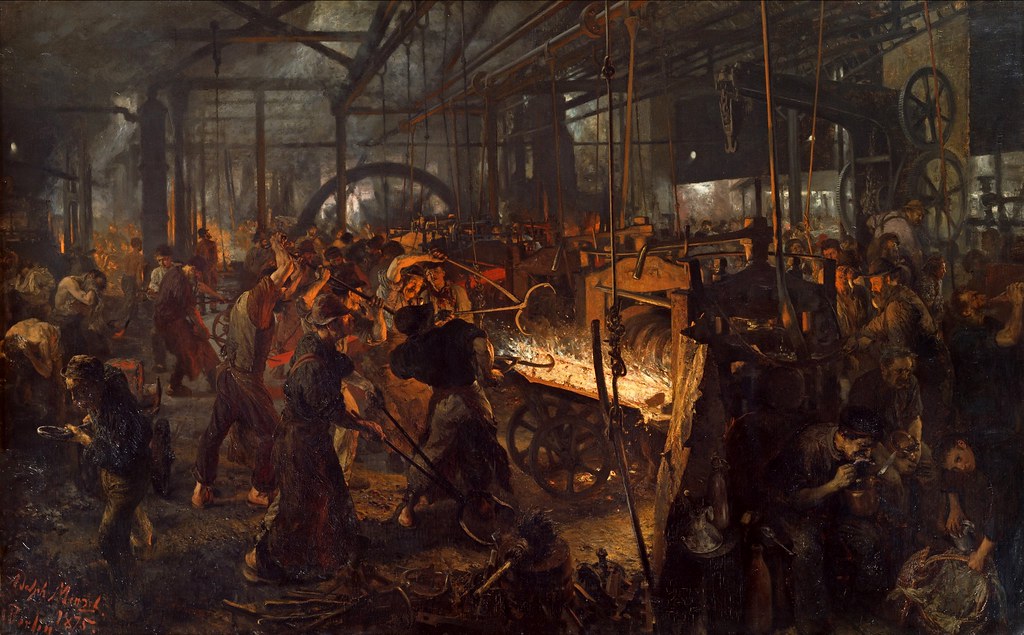AI has been around for long enough that classical schools need to have a realistic conversation about it. There are several phases that every technology must pass through: demonization, adoption, acceptance. While there may be some curmudgeons out there still intent on demonizing AI, it’s high time classical schools move on to the adoption phase.
If classical schools insist on banning AI in all forms, their kids will be left behind. The job market is shifting to AI-centered workflows. Most tasks have already been replaced by AI. If our students don’t know how to write business proposals, mission statements, budgets, timelines, or code using AI, they will be overshadowed by others who can use these tools. Even professional coders use AI to create functions, logic, and programs—or at least to check their own work for flaws. Students who don’t know how to type, “write a sales contract with net 60 terms for Mujin,” will be unable to compete in the global job market.
Further, we need to recognize that AI is an incredible time-saver, not only for composing work documents, but also for interpreting and summarizing them. Perhaps you’ve seen the Apple Intelligence commercial where the employee scoots his chair out of the meeting to ask AI to summarize the prospectus. He quickly returns and begins reading off his prompts. Imagine how much more time could be saved if AI not only wrote, but read business documents? We have forklifts to carry heavy weights; there is no need to burden yourself with a barbell.
Anyone who has taught at the high school level for some time recognizes that students’ ability to write is declining. So why do we still require students to write mediocre papers which teachers must suffer through? Teaching students to use AI would enhance essay quality. A large language model is far more eloquent than any eighth grader or even most seniors. AI provides scaffolding to the student so they consistently create quality prose and grow accustomed to better writing. Then, they will be able to imitate the great compositions they saw in their school years.
In the old days, to learn art, one would need to spend time contemplating the works of the masters (at least the ones you could get your hands on). Then, with much painstaking practice, you would be able to draw or paint what you saw in your imagination. Now, one merely needs to use AI to imagine countless works in the style of the masters. Once you have found a piece worthy of imitation, instead of enduring the messiness of watercolors or paintbrushes, use AI to create your art. The entire process of stick figures and lament is circumvented. It’s like running a marathon in a tenth of the time through an ingenious shortcut.
While we are on the subject of schoolwork, I have another proposal. We would spare teachers both the laborious work of grading and accusations of subjectivity if they could just use AI to grade the essays. When parents complain about the grade or that it is too subjective, just point out that you used a computer. It’s algorithmic. Science is never wrong. Parent-teacher conferences would be easily discarded as well: parents could simply use AI to write their complaints or questions. Teachers could then use AI to answer them.
We should not allow our traditionalism to blind us to the future. We need to be practical. AI has read more classical literature than most of our teachers. It has consumed mathematical treatises, every epic known to man, and all the poetry in the world. It has perfect recall. It is faster, more efficient, and direct than the greatest teacher you could possibly find. Just imagine interviewing someone who had been directly taught by the greatest minds in history—Homer, Plato, Aristotle, Augustine, Boethius, Dante, Thomas, Newton, Descartes, Kant, Hegel, Jobs, Zuckerburg, Musk. You would hire that teacher on the spot.
Do you want tired and overworked teachers staying up until midnight cribbing together mediocre lectures from Wikipedia? Why not have AI write engaging and interesting presentations of history replete with obscure and interesting anecdotes? When trying to explain Bonaventure’s particular emphases in the context of medieval thought, why spend time doing superficial research? Just ask AI to summarize 1,000 years of argument and debate. While teachers spent countless hours trying to arrive at speculative conclusions, AI delivers results. We are at a new renaissance. It is time to discard the old magic and embrace the new alchemy. It’s amazing that anyone still thinks reading books is a good use of time.
For those still skeptical: remember that using AI is just like paying a substitute. How many times have you been grateful for any warm body to show up, no matter how unqualified? With AI, you will never need to worry that Mrs. Baker hasn’t ever heard of Thucydides or thinks that Homer is the Simpsons’ patriarch. If we pay unqualified substitutes, why wouldn’t we use an advanced language model trained on classical texts and teaching techniques? Until we get the Nebuchadnezzar’s training station to download content into teachers’ heads (I know Kung Fu), we’ll have to settle for the next best thing. If you are willing to pay someone to do a job, what’s the difference in using AI?
But if classical schools really want to remain on the cutting-edge (as they always have) they ought to go further. Given its incomprehensibly large data set, AI is even more qualified than trained teachers. It knows more about classical content and pedagogy than the most experienced teacher in the field. We ought to leverage this opportunity for the kingdom—plunder the Egyptians and all that. AI makes it possible to put the greatest teacher ever created in one-on-one dialogue with every student. No more will a teacher be asked a question that catches them off guard or that forces them to admit, “I don’t know.” We ought to place a Chromebook with Claude or ChatGPT in the hands of every student. Imagine every child tutored by Socrates.
Eventually, classical schools need to come to grips with reality. Demonization has been the reaction to every new technology. People thought the word processor would encourage mistakes and spell-check would ruin spelling. The car was thought to be a monstrosity, but where would we be without it? We wouldn’t have the elegant Cybertruck, that’s for sure. People even thought the smartphone would ruin human connection, attention spans, memory, or our ability to think, locking us into an endless cycle of doomscrolling and dopamine hits. This has been exposed for the folly it is. Immediately embracing new technology is the time-tested way to get ahead—you might even call it classical.
Schools cannot be so afraid of new technology that they miss the opportunities presented to them. AI makes dominion and kingdom-building possible like nothing before. This is the new printing press. Where would the reformation be if Luther had not strategically embraced a new technology? By using AI to train students, startup schools can have high-quality teaching for a fraction of the cost. Faculty is the largest expense of schools. With these savings, schools will be more equipped to train the next generation of leaders to shape culture. No more will schools need to embark on the desperate search for a Latin teacher; they would have a Latin expert for every student at a perfect 1:1 ratio.
In time, it’s also likely that AI could fulfill many of the responsibilities performed by office staff. Writing policies, vision statements, strategic plans, grants, or parent communications could all be done in a fraction of the time by AI. What do headmasters do that could not be replaced by AI? It’s likely they are already using it for many tasks anyways. It’s possible that we could feed AI enough content and parameters that we wouldn’t need to have any staff except for janitors. We could have students learn from their classical AI at home, except they need to be socialized. It builds community when students use their devices in the same room. If students still need some semblance of personal connection to their teacher, we might construct an artificial head to lead them in instruction. I propose we name this model Alcasan.
Classical schools have been enslaved to the past for too long; it is time to look to future generations. I am afraid we have spent too much time studying microbes and not enough learning about macrobes.
Unfortunately, it’s likely that the energy drain from using AI to run a school will be significant. The energy grid may not be currently sufficient to handle my modest proposal. However, there is a simple solution. We could use the former teachers as batteries.
Image Via: Flickr







7 comments
Jacob Allee
I wonder if Jonathan Swift will weigh in on this piece? I’d like to hear his editorial.
Amanda Patchin
Austin, this both amused me and warmed my heart: especially the headmaster paragraph. Nice work, my friend.
Matthew Mills
I fear it’s time to buy 40 acres of farmland in south central Wisconsin. The bots are coming for everyone dependent on a paycheck.
Jacob
While I agree with your sentiment that children in classical schools must learn and be acquainted with AI, I do not think we should throw the baby out with the bathwater and completely neglect learning the traditional way.
Instead of expecting our teachers to model the classical education we wish our children to have, you propose to effectively have AI teach the children. As someone entering the education sector, I wholeheartedly agree that we should use AI to make our lives and the lives of our students more efficient (when it comes to grading, for example). And we should use AI for writing. However, I believe we should use AI rather to model what good writing looks like, not ending the practice of essay writing altogether. That doesn’t solve the problem of students’ decreasing prowess with the written word.
While most of us cannot afford to be luddites, I disagree with the notion that we should be full on pioneers of this tool. Aside from the ethical problems of using algorithms for student work, what will this teach our students? Clearly, we know that smartphones and the modern Internet have caused much damage to developing minds (although you don’t seem to believe this). While we must adapt to change, human beings lose valuable skills and abilities with innovations. Some of them are missed less than others, but it would be foolish to say that we should jump into AI instead of being cautiously optimistic.
You have a compelling argument, I merely disagree with some of the reasoning behind it. I do agree that the world is changing, and we must make a decision as to what role we play in the new AI zeitgeist.
Madeleine
Jacob, to help you save face, you may want to give this one another read! Don’t worry, you are surely not the only one!
Madeleine
“We have forklifts to carry heavy weights; there is no need to burden yourself with a barbell.” 🙂
Brian Miller
It may be the skill of the author. Or, it may be the punch of uncertain ABV consumed at a party the night before. But I was loading my pencil after the first paragraph for a double-barreled retort. Then the gray cells caught up with the title and I relaxed, laughed, and finished waking up with a second cup of coffee.
Thanks for “write a sales contract with net 60 terms for Mujin.”
Comments are closed.